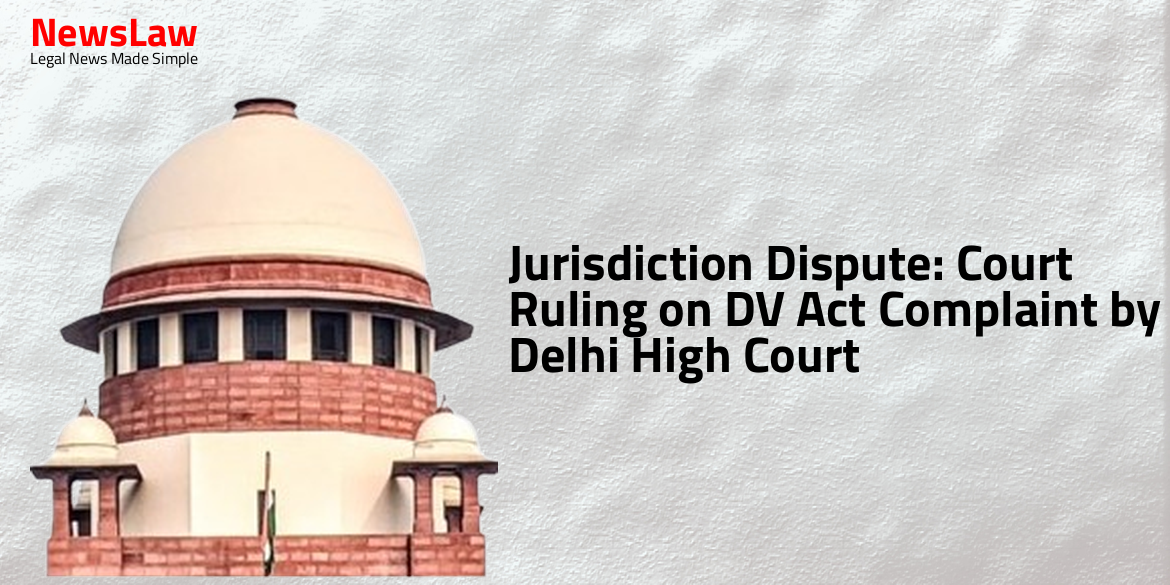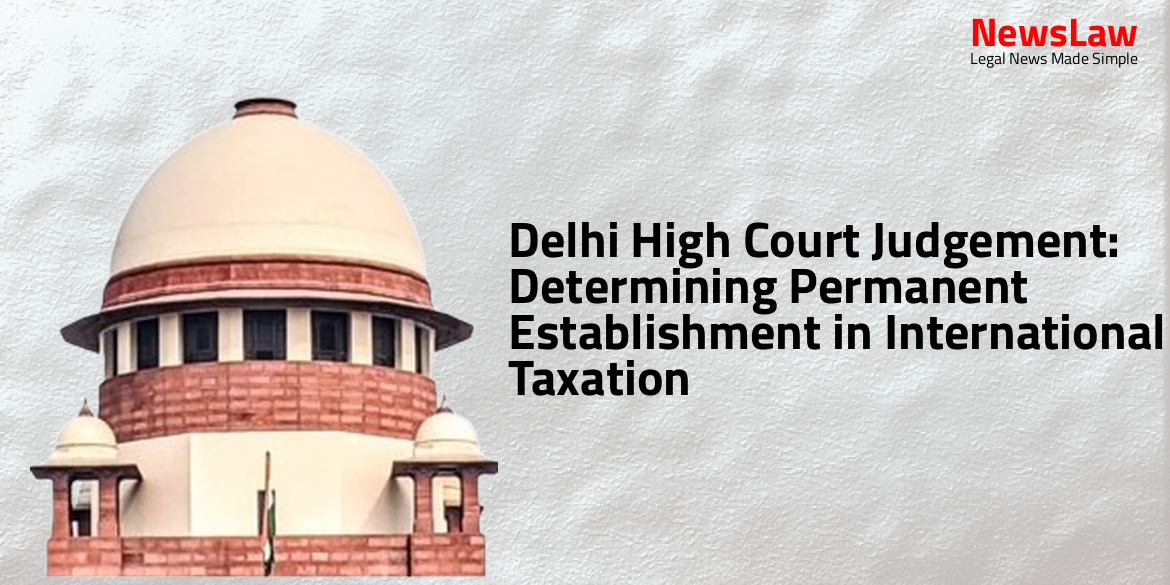In a recent judgement by the Delhi High Court, a jurisdiction dispute in a Domestic Violence Act case involving the parties from Ghaziabad, Uttar Pradesh and Delhi has been resolved. The case revolves around a complaint filed by the petitioner regarding custody and divorce, and the respondent’s subsequent complaint under the DV Act. Stay tuned to learn more about the court’s ruling on this complex legal issue.
Arguments
- Complaint filed by the Petitioner in the U.S.A. regarding custody of the child and divorce.
- Marriage between the parties took place in 2009 in Solan, Himachal Pradesh.
- Child born in 2010 in the U.S.A. and is a U.S.A. citizen.
- Respondent filed a complaint against the Petitioner in Ghaziabad, Uttar Pradesh after travelling to India.
- Petitioner has supported the plea with her Aadhaar Card and Voter Id Card.
- Petitioner alleges that respondent admits to residing in Ghaziabad, Uttar Pradesh in the complaint itself.
- Respondent filed the complaint under the DV Act after no action was taken on the initial complaint lodged with Ghaziabad Police.
- Petitioner argues that the Court of the learned Metropolitan Magistrate in Delhi should not have jurisdiction as respondent’s address is in Ghaziabad, Uttar Pradesh.
- Petition is claimed to have been filed with mala fide intent according to the petitioner.
- Respondent’s counsel argues that the address in Delhi given by the respondent is the ancestral home of the family.
- Respondent clarifies that she temporarily stayed in Ghaziabad, Uttar Pradesh after landing in India.
- Respondent contends that mala fide intent in filing the complaint is denied and should not be a ground for dismissal at a preliminary stage.
- Section 27(1) of the DV Act confers jurisdiction based on the permanent or temporary residence of the person aggrieved or the respondent.
- The respondent claims to permanently reside within the local limits of the Metropolitan Magistrate where the complaint is filed.
Analysis
- Objections raised by the respondent for dismissal of the case on grounds of territorial jurisdiction cannot be considered at this stage
- The determination of territorial jurisdiction and other objections can only be made after both parties have presented their evidence
- The application of the respondent is dismissed
- Complainant’s case is supported with affidavit and proof of residence within the jurisdiction
- Complaint cannot be dismissed based on lack of territorial jurisdiction at this stage
- Territorial jurisdiction issue to be determined during trial
- Challenges to the complaint based on earlier litigations in the U.S.A. have a similar fate as the current case.
- Previous litigations by the petitioner in the U.S.A. have no impact on the current complaint.
- Mala fide in filing the current complaint post an earlier filing with the Ghaziabad Police is not a valid ground for quashing the complaint.
- The submission of mala fide does not warrant the quashing of the complaint at this stage.
Decision
- The pending application is disposed of as being rendered infructuous.
- The present petition is found to have no merit and is dismissed.
- The consideration of the mentioned issue is deferred to an appropriate stage by the Metropolitan Magistrate after hearing both parties.
- No costs are ordered in this matter.
Case Title: DR. KALIND PARASHAR Vs. DR. KAVERI PARASHAR (2024:DHC:4090)
Case Number: CRL.M.C.-3967/2022



